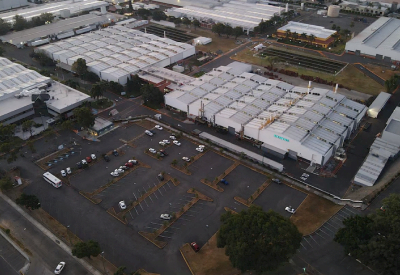ABB To Acquire Siemens Low Voltage NEMA Motor Business

August 11, 2022
- •ABB expands its low voltage NEMA motor portfolio to further establish itself as a leader in that segment
- •Delivers on ABB’s promise to expand into new markets and profitably grow market share
- •Established manufacturing operations in Mexico to support future growth
- •Acquisition expected to be margin accretive to the ABB Motion business within 24 months
ABB announced recently it has signed an agreement to purchase Siemens’ low voltage NEMA motor business. With manufacturing operations in Guadalajara, Mexico, this acquisition provides a well-regarded product portfolio, a longstanding North American customer base, and an experienced operations, sales, and management team. The business employs around 600 people and generated revenues of approximately $63 million in 2021. Financial terms of the transaction were not disclosed. The transaction is expected to close in the second quarter of 2023.
This transaction is part of the Motion business area’s profitable growth strategy, and it will allow the NEMA motors division to enhance its product offering, expand its supply chain relationships, and improve support to its North American customer base. It also offers the opportunity to better support the customers in Mexico with local manufacturing and sales. ABB expects to benefit from identified synergies, and to use the R&D expertise, supply chain relationships, and market access to bring the combined portfolio to its full potential.
“This bolt-on acquisition creates strong value for ABB’s NEMA motors division,” said Tarak Mehta, President ABB Motion. “Investing in the business and opening up sales opportunities in North America and especially Mexico will allow this business to be margin accretive to the ABB Motion business within 24 months.”
“We have long appreciated the quality and design of these motors,” Jesse Henson, President of ABB’s NEMA motors division, added. “Now that we have met the leadership team behind them, I am even more confident that together we can grow our combined businesses faster than either of us could alone. We look forward to adding the Siemens low voltage NEMA motor portfolio to our existing offering of ABB and Baldor-Reliance® industrial electric motors.”
The global NEMA motor industry, roughly $2.7 billion in size, comprises industrial electric motors primarily used within North America. NEMA motors are essential components used to run equipment in industries such as food and beverage, oil and gas, mining & aggregate, and water & wastewater and in applications like those which move air, liquids, and units.









